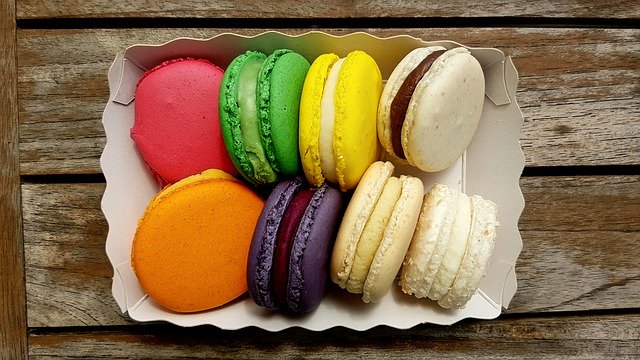In a recent post we covered the basics about adjectives in French, which change form to agree with the person or thing that they describe. In this part two post, we’ll cover some more types of adjectives. Remember that adjectives in French change according to gender (masculine or feminine) and number (singular or plural), so they can have four forms: masculine singular, feminine singular, masculine plural, and feminine plural. But as we’ve already seen, some adjectives only have two or three forms, and now we’ll see that some are actually invariable, meaning they don’t change form.
Review: Regular Adjectives
Remember that with most adjectives in French, you just add –e to the masculine singular to form the feminine singular. And then you add –s to both of those to form the plurals: –, -e, -s, -es. The adjectives below are listed in the order masculine singular, feminine singular, masculine plural, feminine plural.
- big, tall: grand, grande, grands, grandes
- small, short: petit, petite, petits, petites
Adjectives ending in -al
Adjectives like principal (main, principal), général (general), idéal (ideal), génial (great), normal (normal) end in –aux in the masculine plural. The rest is regular.
- main, principal: principal, principale, principaux, principales
- national: national, nationale, nationaux, nationales
Adjectives ending in -f
Adjectives that end in –f change the -f to –v before adding –e in the feminine. Examples are naïf (naive), actif (active), sportif (sporty, into sports), vif (lively), neuf (brand new), impulsif (impulsive). Bref (brief) belongs in this category, but note that the e changes to è before v.
- active: actif, active, actifs, actives
- brief: bref, brève, brefs, brèves
Adjectives ending in -er or -et
Adjectives that end in -er add an accent and end in –ère in the feminine: cher/chère (dear, expensive), dernier/dernière (last), premier/première (first), léger/légère (light), fier/fière (proud), entier/entière (whole, entire).
- whole: entier, entière, entiers, entières
Most adjectives that end in -et double the t and end in -ette in the feminine: net/nette (clean), cadet/cadette (younger), coquet/coquette (pretty). But a few common exceptions change the e to è to end in -ète in the feminine: inquiet (worried), complet (complete), secret (secret), discret (discreet).
- complete: complet, complète, complets, complètes
Adjectives ending in -teur
Many adjectives that end in -teur change to -trice in the feminine. For example: conservateur (conservative), protecteur (protective), dévastateur (devastating), libérateur (liberating).
- devastating: dévastateur, dévastatrice, dévastateurs, dévastatrices
But be careful. A lot of adjectives in -eur change to -euse: rêveur/rêveuse (dreamy, someone who dreams), songeur/songeuse (pensive, thoughtful), porteur/porteuse (bearing, holding, supporting).
Irregular Adjectives
French has a lot of irregular adjectives. We covered beau, nouveau, and vieux in our first post, and here they are again with a few more common irregular adjectives in French. Notice that even with irregulars, there are often patterns. For example, beau, nouveau, vieux, and jumeau all have double –ll– in the feminine, and –x in the masculine plural.
- beautiful: beau, belle, beaux, belles
- new: nouveau, nouvelle, nouveaux, nouvelles
- old: vieux, vieille, vieux, vieilles
- twin: jumeau, jumelle, jumeaux, jumelles
Doux and faux both have –x in the masculine, and an /s/ sound in the feminine, spelled either -ss or –c.
- sweet, gentle: doux, douce, doux, douces
- false, fake: faux, fausse, faux, fausses
A few common adjectives take –che in the feminine.
- white: blanc, blanche, blancs, blanches
- fresh: frais, fraîche, frais, fraîches
- dry: sec, sèche, secs, sèches
- frank, honest: franc, franche, francs, franches
And then there’s favori, which adds -t.
- favorite: favori, favorite, favoris, favorites
Invariable Adjectives
A few adjectives are invariable, meaning they don’t change form at all. These tend to fit into two categories. The first are colors derived from things like fruits or metals or animals: marron (chestnut brown), orange (orange), cerise (cherry red), turquoise (turquoise), marine (marine blue), puce (puce, purple-brown) etc. The second are adjectives borrowed from other languages: cool (cool, relaxed), gratis (free), kascher (kosher), jazzy (jazzy), sexy (sexy), etc.
Test Yourself
- C’est une maison [blanc].
- Ma chemise n’est pas [sec].
- Hervé et Sylvain sont [jumeau].
- Cette musique est très [vif].
- Raconte-moi l’histoire [entier].
- Mon frère est très [fier] de sa fille.
- C’est une fille [doux].
- C’était une tempête [dévastateur].
- Ma sœur [cadet] s’appelle Christine.
- Ce sont des [cher] amies.
- Isabelle, sois [franc] avec moi.
- Les vins [principal] de la region sont assez [cher].
Do you want to learn French?
Check out our other posts on French language, culture, and more. And if you’re looking for convenient and affordable live French lessons with a real teacher, check out The Language Garage. Our lessons are given online in a virtual classroom, so it doesn’t matter where you live or work. We can come to you. And we have flexible options, with a free trial so that you can decide if there’s a fit. Check us out!
Answers
- C’est une maison blanche. (It’s a white house.)
- Ma chemise n’est pas sèche. (My shirt isn’t dry.)
- Hervé et Sylvain sont jumeaux. (Hervé and Sylvain are twins.)
- Cette musique est très vive. (This music is very lively.)
- Raconte-moi l’histoire entière. (Tell me the entire story.)
- Mon frère est très fier de sa fille. (My brother is very proud of his daughter.)
- C’est une fille douce. (She’s a sweet girl.)
- C’était une tempête dévastatrice. (It was a devastating storm.)
- Ma sœur cadette s’appelle Christine. (My younger sister’s name is Christine.)
- Ce sont des chères amies. (They’re dear friends.)
- Isabelle, sois franche avec moi. (Isabelle, be honest with me.)
- Les vins principaux de la region sont assez chers. (The principal wines of the region are pretty expensive.)
Image by cocoparisienne from Pixabay.



